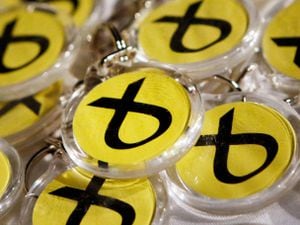Internal Market Bill may discourage new regulations, MSPs told
Professor Michael Dougan said pre-legislative consultation between the four nations could have resulted in a better Bill.

The UK Government’s Internal Market Bill could discourage devolved nations from putting new regulations in place, MSPs have been told.
The controversial new legislation, which just completed the committee stage at Westminster, is aimed at maintaining free trade across the UK, but devolved nations have raised concerns about the effects of the Bill.
The Bill includes a provision that would see mutual recognition on trade, meaning certain goods allowed to be sold in one part of the UK would have to be allowed to be sold in others.
European law professor Michael Dougan, of Liverpool University, said this provision means that if the devolved administrations increase their standards, it would only affect their own producers and would not increase the standards of goods sold.
Giving evidence to the Finance and Constitution Committee at Holyrood on Wednesday, Prof Dougan said: “The impact in practice of this Bill in many of the proposed exercises of devolved competence in relation to trading goods or services is to effectively penalise domestic producers or traders and not be able to enforce the same standards against imported goods or service providers.
“I think the natural consequence of that is you’re going to discourage the exercise of devolved competences, if you’re not going to achieve your public interest objectives anyway and you’re only going to end up penalising your own domestic producers.
“So what’s the point of Scotland, for example, trying to ban single-use plastics if the Scottish authorities know that the ban will be totally ineffective in practice and they’ll only penalise Scottish producers of packaging?”
Prof Dougan added the public interest justification as seen in current EU regulations, for denying access to goods, is “stripped away” in the Bill, meaning only the importation of pests, disease or unsafe food would be grounds for refusal.

For services, Prof Dougan said only a serious public health emergency which causes danger to human health is a reason for denial.
When asked how the Bill could be amended and made better for all parts of the UK, Prof Dougan said substantive “pre-legislative dialogue” should have taken place.
He told MSPs: “I think my preference would have been to have a system of pre-legislative dialogue between the four territories where they sat down as equals and discussed the potential impact of regulatory changes upon trade within the UK and sought to find the best solution for that particular situation based on a range of principles.”
Prof Dougan said if there were barriers to trade created by the pre-legislative conversations, then effected producers would “just have to put up with them”.
He added: “That is true of virtually every other internal market in the world – in virtually every other system there are trade barriers and you just have to live with them and adapt yourself to them.”





